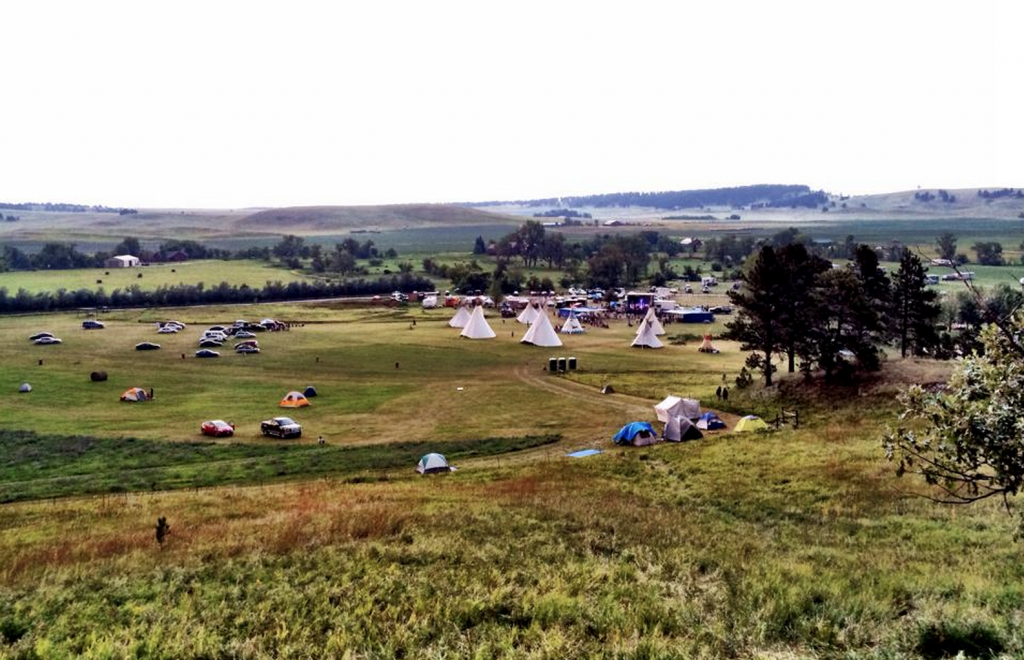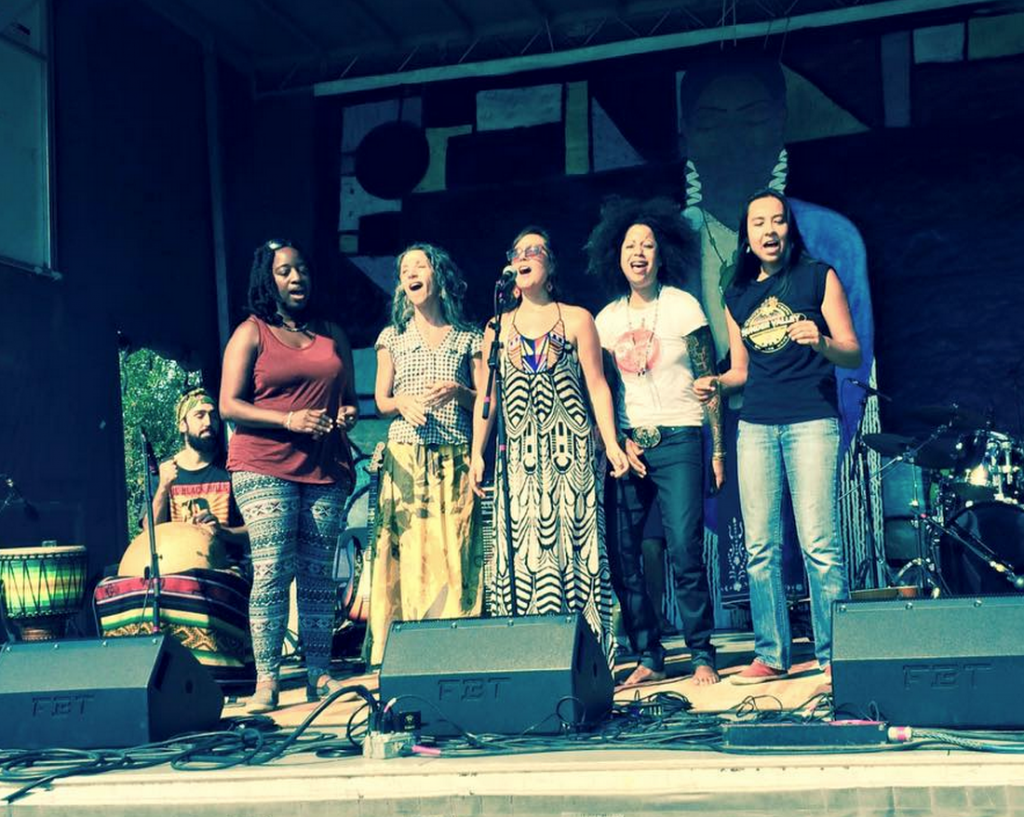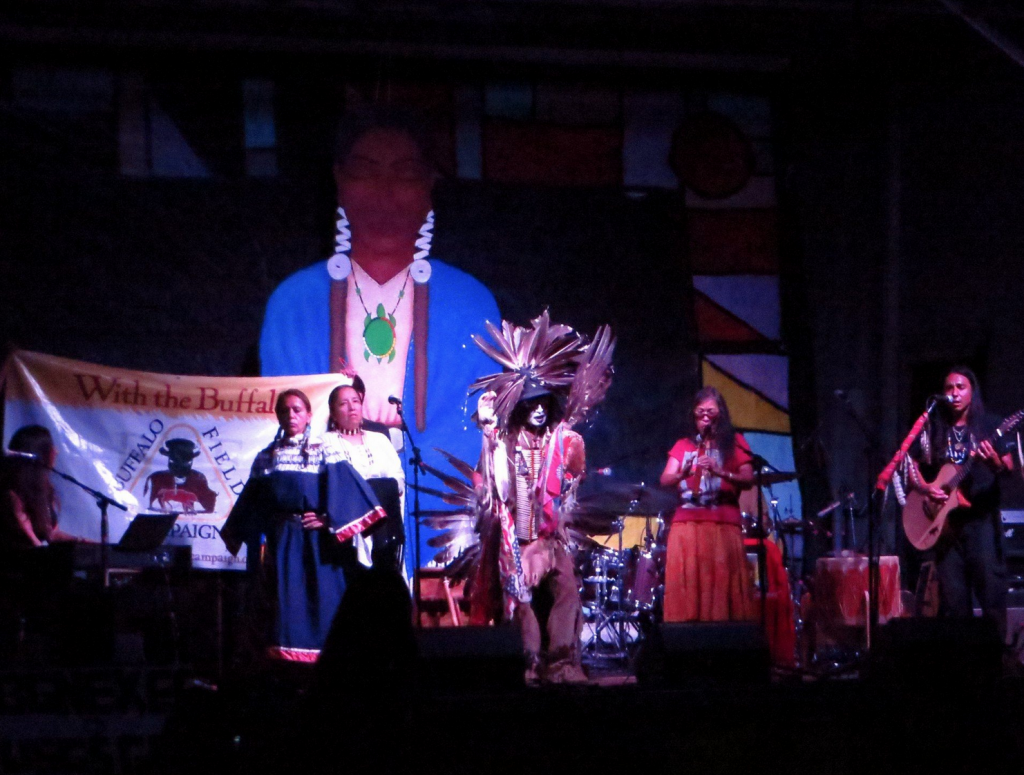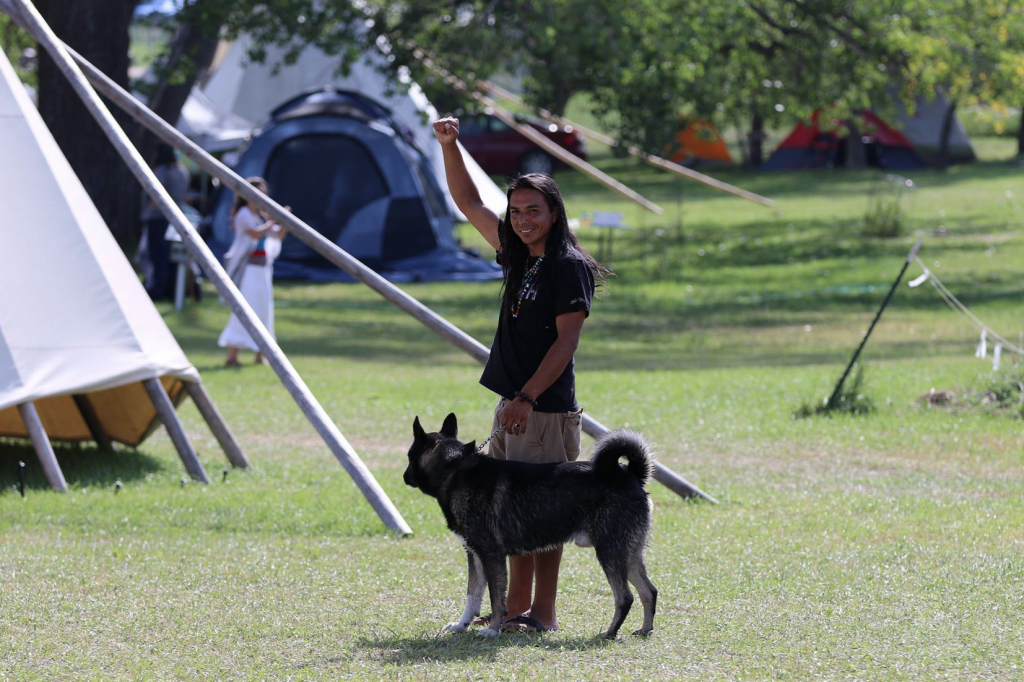AWESOME PROJECT: Black Hills Unity Concert
Published September 10, 2015
Have you ever lost a beloved home, or a place in the natural world that was sacred to you, central to your identity? To your family, or ancestors? An integral part of your very being? Friends, we want to tell you about an awe-inspiring event took place over the course of the last weekend in August: the second annual Black Hills Unity Concert.

[Photo by Biko Casini via the Black Hills Unity Concert’s Facebook]
For the Lakota Native Americans, the Black Hills of South Dakota are the most sacred place in the world. As the Unity Concert’s lead organizer, poet and musician Lyla Johnston puts it, “the Black Hills are where life began, and where life is sustained.” In 1868, as Native Americans were being pushed more and more violently from their ancient territories, the US government promised the Black Hills to the Pte Oyate (or Buffalo Nations, which include the Lakota) as part of the Fort Laramie Treaty – and then went on to break that promise again, and again, and again. The Buffalo Nations have refused the now $1.4 billion settlement originally offered to them in 1980; though many live below the poverty line, they do not want money. They want their sacred home back.
For the event, thousands traveled from as far away as Colombia, Nigeria, Canada, Germany, and Morocco. They gathered to unite in celebration of the wisdom of their native cultures, and to address injustices facing their communities. Native speakers took the stage between musical performances; participants practiced the ancient tradition of visiting sweat lodges. A prayer teepee, film-screening teepee, and environmental issues teepee welcomed all. Workshops covered the unbridled fracking and uranium mining poisoning native lands in South Dakota and elsewhere. A group of Navajo women in whose homeland there is a fracking well every 1.6 miles, and who have walked over 1,000 miles in prayer for the health of their homeland, spoke on the subject. “It’s gotten so out of hand there,” explains Johnston, “that the whole community is falling apart.”

[Photo by Tina Malia via the Black Hills Unity Concert’s Facebook]
The daughter of a Navajo woman and a man of primarily European descent, Johnston grew up on New Mexico’s Taos Pueblo reservation. “I experienced the drugs and other social issues that native children are born into,” she explains matter-of-factly. Cultural and linguistic extinction are still very real threats as well. Johnston’s grandmother, sent off like so many to a boarding school as a girl to unlearn her native culture, was hit every time she spoke her language, and forced to write on the blackboard 100 times, “I will only speak English.”

[Photo by Connie Baxter Marlow via the Black Hills Unity Concert’s Facebook]
Reservation life might have been the end of Johnston, had she not also been exposed at an early age to Lakota culture and prayer, with its Sundance and Sweat Lodge spiritual traditions. “The Lakota spiritual path is really what I grew up learning,” she explains. “The songs, and the way they look at things, and the way they talk about things. So even though I was Navajo, I owe my life to the Lakota people, because without them I wouldn’t know how to pray, and if I didn’t know how to pray, I would have died a long time ago, just from the drugs and the rape and the injuries that I accumulated over the years.”
After studying anthropology at Stanford, Johnston turned down a spot at Harvard Business School to live with her grandmother in Albuquerque, and to learn her native language. That’s what she’s doing now: “digging into my Navajo culture, and doing my part to make sure that that culture doesn’t go extinct, by living it everyday.” She’s learning how to plant corn in the traditional way, how to perform the traditional ceremonies, how to walk on the land, how to sing the old songs. How to read the sky, the temperature, the animals.

[ via the Black Hills Unity Concert’s Facebook]
Johnston had participated as a performer in the first annual Black Hills Unity Concert last year, and was then tapped by Loretta Afraid of Bear and other Lakota elders to organize the second. Even with a team of 50 incredible volunteers at her side, it was a huge job, but Johnston ran with it. “When the Lakota elders look at you and bat their pretty eyes at you,” she explains, “you can’t say no.”
The event, says Johnston, was lifted up by four larger, unifying prayers, felt in the collective consciousness of the community. “It was really a prayer in action,” she explains:
PRAYER for BLACK HILLS RECLAMATION
First and foremost, of course, was “the prayer to reconcile this centuries-old Black Hills issue so that we as a nation could restore our honor by upholding our word to each other, and honor the ancestral connection between the Buffalo Nations and their most sacred site on earth,” as Johnston says.
PRAYER for the EMPOWERMENT of WOMEN
For native women, Johnston explains, it’s not a matter of if they’ll face rape, but when. Violence against women is a terrible problem in native communities, and in many places, matriarchal structures dissolved as cultural extinction took place.
“There was a really clear and heartfelt prayer,” says Johnston of the weekend, “for the women of the world. Every step of the way in this concert, women were honored, from the stage art, to the workshops we had during the day, on honoring the sacredness of women and restoring women’s leadership, to the fact that the whole concert was created by women by and large.”
PRAYER FOR NATIVE YOUTH
“In Pine Ridge reservation alone,” explains Johnston, “which is a small town in South Dakota, over 15 native youth have committed suicide this year. By bringing young artists and musicians that were positive role models for these youth, I sincerely believe that we conducted a form of suicide prevention. On Saturday night there were hundreds of native youth, feeling so alive because their favorite hip hop artists were on stage, teaching them what it means to be a warrior, that it’s a peaceful and joyful thing. After the whole concert was over, I sat in the prayer teepee and sang a gratitude song, and tears started streaming down my face because I knew that we had saved a young Lakota life. And even if that was all we did, all the hundreds of hours of work and sleepless nights would have been worth it.”
PRAYER FOR INTERRACIAL UNITY
“I’ve felt a lot of yearning to reconcile Native American and European cultures, because I’m half white and half red,” says Johnston, “and I’ve witnessed first hand the racial animosity that exists between these two cultures, and it’s broken my heart my whole life to watch them fight.”
“One of the highlights of the whole concert for me was when five women stood on stage together. Two were black women, one was a white woman, one was a Korean woman, and one was a native American woman, and they represented the four colors of the medicine wheel: red, black, white and yellow. And together they sang this song that proclaimed their allegiance to their children, and their allegiance to the health of the earth. I was the native woman on the stage, and it was really hard to sing because I just kept crying.”
If this work inspires you to get involved, know that the third annual Black Hills Concert is coming up next year. “Lakota people, we have to do everything four times,” explains Johnston, “to honor the four directions.” All are welcome, and admission is free.
Want to take action in YOUR neighborhood? If you have awesome ideas about how to make your neighborhood safer, greener, more livable, and more fun, let us help! Tell us your awesome idea right here. We’d love to help you get started today.
Pssst…. In OTHER ioby news: Want to bring some creative zest to your block? Let one of our awesome ioby leaders show you how to get your community on board for a big community mural.
